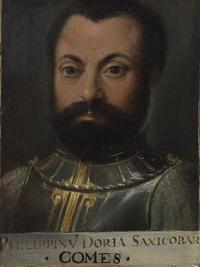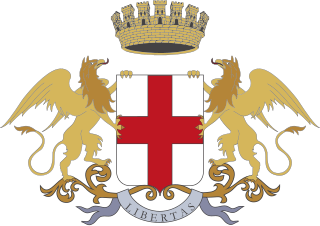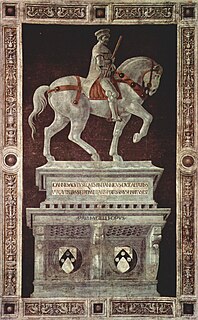 W
WGeneral Paolo Crescenzo Martino Avitabile Hindko: ; was an Italian soldier, mercenary and adventurer. A peasant's son born in Agerola, in the province of Salerno near Amalfi, he served in the Neapolitan militia during the Napoleonic wars. After Waterloo he drifted east like many other adventurous soldiers. In 1820 he joined the army of the Shah of Persia, attaining the rank of colonel and receiving several decorations before returning to Italy in 1824.
 W
WGiorgio Basta, Count of Huszt or Gjergj Basta was an Italian general, diplomat, and writer of Arbëreshë origin, employed by the Holy Roman Emperor Rudolf II to command Habsburg forces in the Long War of 1591–1606. He was later sent to administer Transylvania as an Imperial vassal and to restore Catholicism as the dominant religion in the region.
 W
WThe Black Bands, sometimes referred to as the Black Bands of Giovanni, was a company of Italian mercenaries formed and commanded by Giovanni de' Medici during the Italian Wars; their name came from their black mourning colors for the death of Pope Leo X. Composed primarily of arquebusiers—including Europe's first mounted arquebusiers—the company was, by the Italian War of 1521, considered to be the finest Italian troops available. Initially in the service of Charles de Lannoy and the Pope, the company fought at Bicocca in 1522 and the Sesia in 1523. A pay dispute led to it transferring its allegiance to Francis I of France; it took part in the battle of Pavia under the command of Richard de la Pole, White Rose.
 W
WFilippo or Filippino Doria was a Genoese admiral from a cadet branch of the Doria family.
 W
WRoger de Flor, also known as Ruggero/Ruggiero da Fiore or Rutger von Blum or Ruggero Flores, was an Italian military adventurer and condottiere active in Aragonese Sicily, Italy, and the Byzantine Empire. He was the commander of the Great Catalan Company and held the title Count of Malta.
 W
WGiuseppe Maria Garibaldi was an Italian general, patriot and republican. He contributed to the Italian unification and the creation of the Kingdom of Italy. He is considered to be one of the greatest generals of modern times and one of Italy's "fathers of the fatherland", along with Camillo Benso, Count of Cavour, Victor Emmanuel II of Italy and Giuseppe Mazzini. Garibaldi is also known as the "Hero of the Two Worlds" because of his military enterprises in South America and Europe.
 W
WIsnardo Guarco was an Italian politician, mercenary leader, plutocrat, and served as Doge of Genoa for one week.
 W
WMigliorino Ubaldini, known also as "Captain Mellerin," was an Italian military engineer working in Scotland. He designed new fortifications at the entrances of Edinburgh Castle, Dunbar Castle, and possibly the walled town of Leith.
 W
WThe White Company was a 14th-century English mercenary Company of Adventure, led from its arrival in Italy in 1361 to 1363 by the German Albert Sterz and later by the Englishman John Hawkwood. Although the White Company is the name by which it is popularly known, it was initially called the Great Company of English and Germans and would later often be referred to as the English Company.